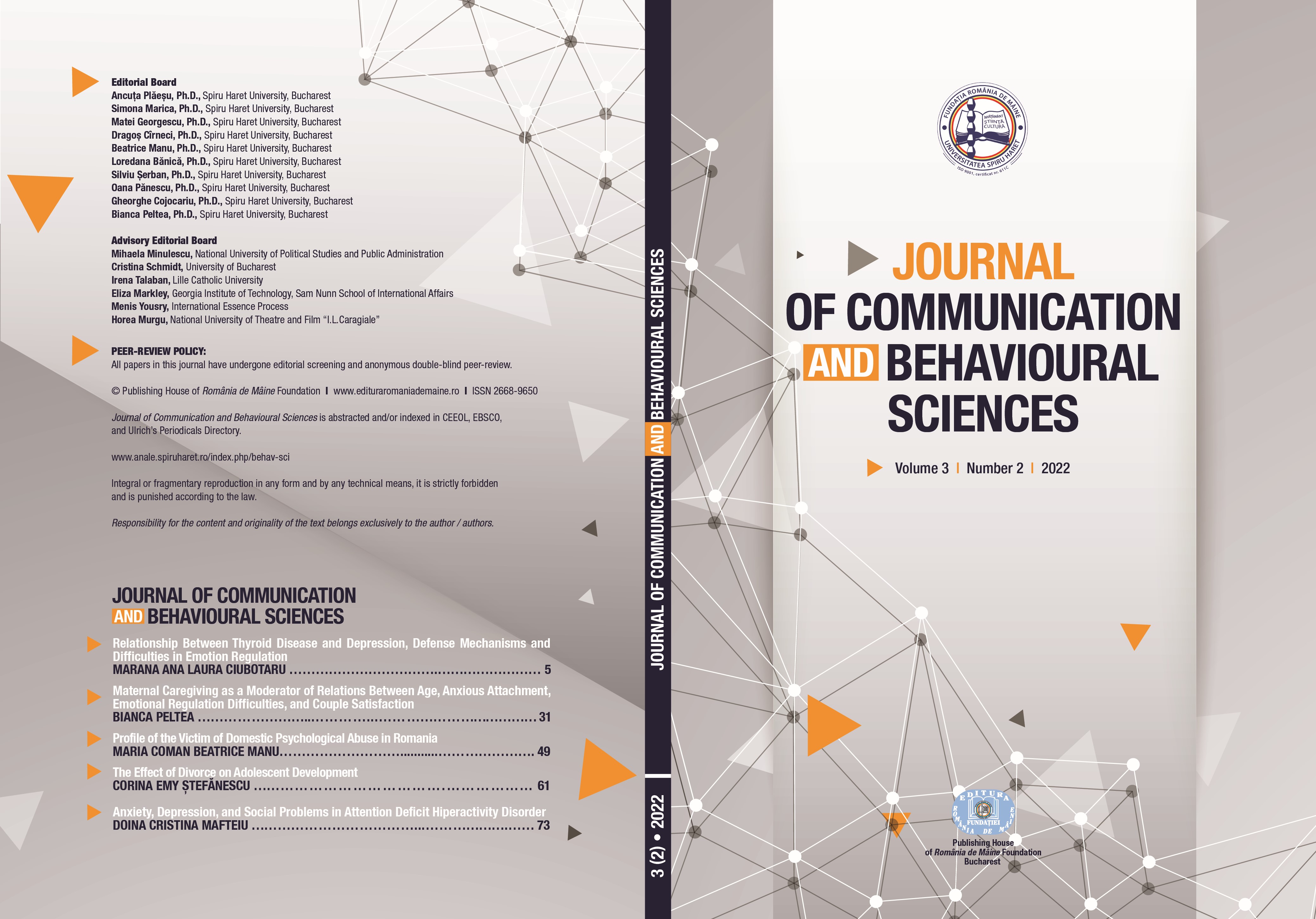MATERNAL CAREGIVING AS A MODERATOR OF RELATIONS BETWEEN AGE, ANXIOUS ATTACHMENT, EMOTIONAL REGULATION DIFFICULTIES,
AND COUPLE SATISFACTION
MATERNAL CAREGIVING AS A MODERATOR OF RELATIONS BETWEEN AGE, ANXIOUS ATTACHMENT, EMOTIONAL REGULATION DIFFICULTIES,
AND COUPLE SATISFACTION
Author(s): Bianca PELTEASubject(s): Psychology, Individual Psychology, Developmental Psychology
Published by: Editura Fundaţiei România de Mâine
Keywords: family structure; maternal caretaking; attachment figure; anxious attachment style; emotion regulation; couple satisfaction;
Summary/Abstract: The study of maternal caregiving impact upon later-life development can expand family research by connecting it with personality and social studies, with insights into lifelong individual development, but also into couple psychology. In the present study, maternal care has been shown to be an effective moderator for long-established negative relations between variables such as age and relationship anxiety, age and emotional regulation difficulties, the anxious attachment style and couple satisfaction, emotional regulation difficulties and couple satisfaction, which means that such relations only hold statistically for a sub-category of the general population in which they have been measured in a manner not accurately determined up to now. The present paper is a sequel to previous ones within an ample project aiming to show how easily-measured indicators of family structure can overcome the dominant view that family systems are difficult to maneuver into research methodology. Introducing a simple demographic question regarding participants’ maternal care has been used in order to significantly differentiate between such dissimilar developmental situations to be taken into account. Results are interpreted within the context of family systems and family structure indicators. It is suggested that personality research may benefit from considering the two distinct situations not enough examined in the literature while studying developmentally diverse contexts. Practical recommendations are made in a final methodological discussion and directions for future research are given.
Journal: Journal of Communication and Behavioural Sciences
- Issue Year: 3/2022
- Issue No: 2
- Page Range: 31-48
- Page Count: 18
- Language: English
- Content File-PDF

